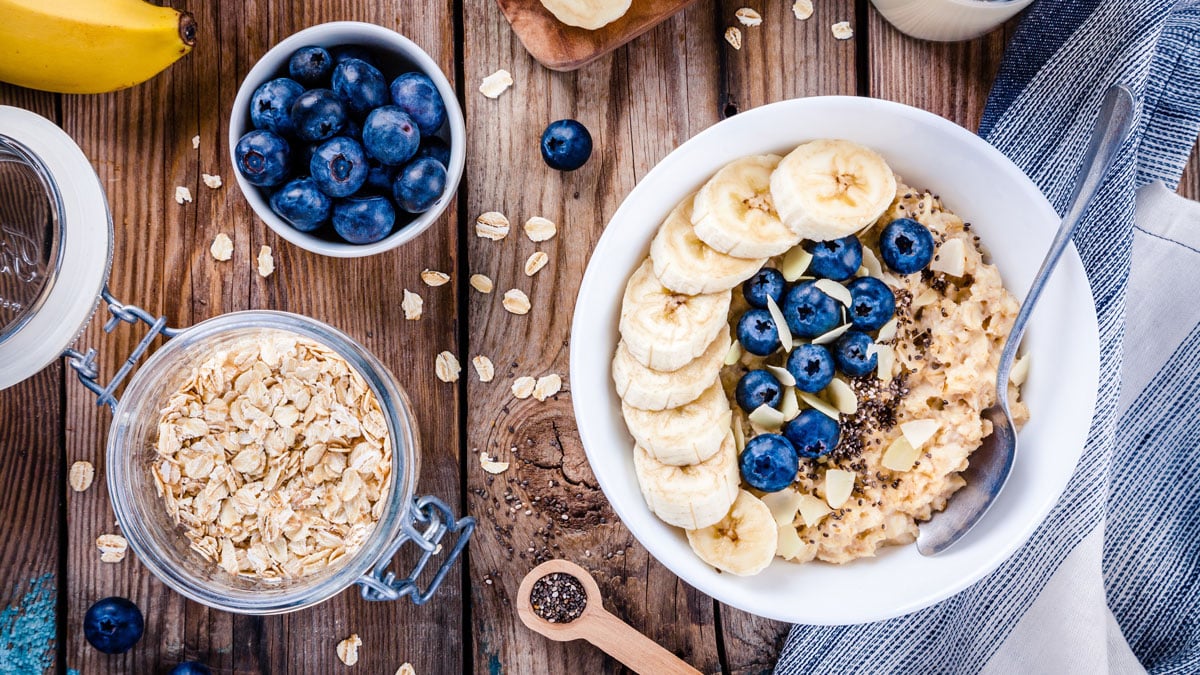When was the last time you ate so much you needed a nap to recover? Do you ever get “hangry” and feel like every minor annoyance is magnified until you satisfy your hunger? If this sounds familiar, then you’ve experienced first-hand the deep connection between your gut and your mind.
Research shows that people who are low in or lack certain nutrients are more prone to mood swings, irritability, fatigue, depression-related symptoms, and more. Eating a wide variety of foods helps nourish the brain and the body.
The gut-mind connection
Your gut is a functional organ that absorbs nutrients. It’s also considered to be a type of “brain” itself, lined with over 100 million nerve cells that release hormones which communicate with the brain in your head.
It’s home to both good and bad bacteria. Having greater diversity and quantities of good bacteria helps crowd out the bad bacteria. It supports better immune function, prevents inflammation, and balances hormone levels, all while helping to digest food.
We can increase and diversify the good bacteria by eating various foods containing beneficial compounds (prebiotics) that the good bacteria feed on. These foods include whole grains, vegetables, fruits, nuts, and seeds.

Along with producing vitamins K and B12 for the body, good bacteria in your gut also produce chemicals (known as neurotransmitters) like dopamine and serotonin. Your nervous system uses these chemicals to send messages between cells. Both dopamine and serotonin help you feel happy and regulate your mood.
Have you ever heard of nutritional psychiatry? It’s an emerging research area that looks at how your diet and eating habits can affect your mental health. What you eat impacts your overall mood as well as brain health. And part of this happens in your gut.
Simple ways to improve gut health
Include vegetables and fruits at every meal
Canada’s Food Guide recommends filling half of your plate with vegetables and fruits at every meal, along with a quarter plate of whole grains and a quarter with lean proteins.
Vegetables and fruits have many essential nutrients, and including them regularly in your diet increases the diversity of gut bacteria, which can improve mental health conditions like depression.
Try these easy BBQ side dishes as inspiration for different types of veggies to go along with your mains.
Start the day with breakfast
Eating breakfast helps maintain a steady blood sugar level, setting the tone for your mood and energy level for the day. Try these easy breakfast recipes to start your morning.
Swap the “white” carbs for the whole grains
Refined carbs like white bread, white rice, and white pasta can spike your blood sugar levels, only temporarily boosting your energy levels. Choosing whole grains like whole wheat pasta, whole grain whole wheat bread, buckwheat, quinoa, barley, and brown rice more often can help stabilize blood sugar levels.
Go for lean proteins
Over time, eating too much saturated fats, like steaks and beef burgers, can increase your bad LDL cholesterol, raising your risk for heart disease and stroke. Choosing leaner proteins more often, like chicken breasts, fish, eggs, and plant-based proteins, such as tofu, beans, legumes, nuts, and seeds, promotes a healthier heart.
Ditch the refined sugars
Gradually reduce your sugar intake by drinking less sugary drinks and cocktails, and watch out for added sugar. Read the labels and choose foods with little to no added sugar.
The mental health benefits of healthy eating
Improved energy levels
Food is converted into energy to fuel the body, but different foods provide fuel at different rates. Simple sugars and refined carbs, like a can of soda or a doughnut, can give you a quick sugar rush, boosting energy and raising your blood sugar levels. But once the rush is over, blood sugar level falls, and can leave you feeling fatigued and moody.
Over time, the fluctuating hormone levels and mood swings could lead to depression, with men being more profoundly impacted than women.
Eating a balanced diet including whole grains, lean proteins, vegetables, fruits and healthy fats and eating at consistent times helps fuel your body with energy throughout the day. It also builds your body’s reserves for use when energy intake becomes low. To support gut health, it’s advisable to reduce or avoid ultra-processed foods.

Improved focus, concentration and productivity
Did you know the brain uses about 20 percent of the body’s energy? That’s a lot, so it’s not surprising that properly fueling your body is important.
When you include brain-boosting nutrients like omega-3 fats found in fatty fish such as salmon, mackerel and herring, complex carbs like whole grains, and lean proteins like eggs, you can improve your focus, concentration, and productivity.
Other healthy fats, like the monounsaturated fats found in avocados, nuts, and seeds, also benefit brain health and help ward off disease.
Other factors to consider
What you eat isn’t the only thing that impacts your mental health—other lifestyle factors like physical activity, sleep, stress, and alcohol can come into play. Here are a few tips that can help improve your mood:
- Kickstart your morning with a 10-minute workout to set the tone for your day
- Aim to sleep at least 7 to 9 hours each night. If you have been tossing and turning all night, you may also want to check out our tips on sleep quality and mental health
- Try meditation or deep breathing exercises to manage your stress instead of grabbing a drink because alcohol can worsen stress in the long run rather than ease it
Healthy eating, though, will not cure depression, anxiety or other mental health conditions, nor could it replace any medications or treatments one is undertaking.
The gut-brain connection and how it impacts your mental health is complex and remains unclear. Despite almost 95 percent of all serotonin being produced in the gut, little to no research at this time shows exactly how gut-derived serotonin influences brain function.
Still, eating well could help you feel better, and boost energy, focus and productivity. You can also avoid food-induced naps and those hangry moments. Why wouldn’t you want to try and feed your brain what it needs?
What is the one healthy eating tip that you’ll try today? Share it with us in the comments below.

No-Cost Counselling
Access three virtual counselling sessions at no cost through TELUS Health MyCare™. Available to men in BC, AB, ON and QC without extended health benefits.






GREAT ARTICAL SIGN ME TO RECIEVE YOUR E-MAILS
Thanks! We appreciate your support. We need to get your official consent properly entered into the system, so please sign up here: https://dontchangemuch.ca/health-tips/
~Canadian Men’s Health Foundation team member